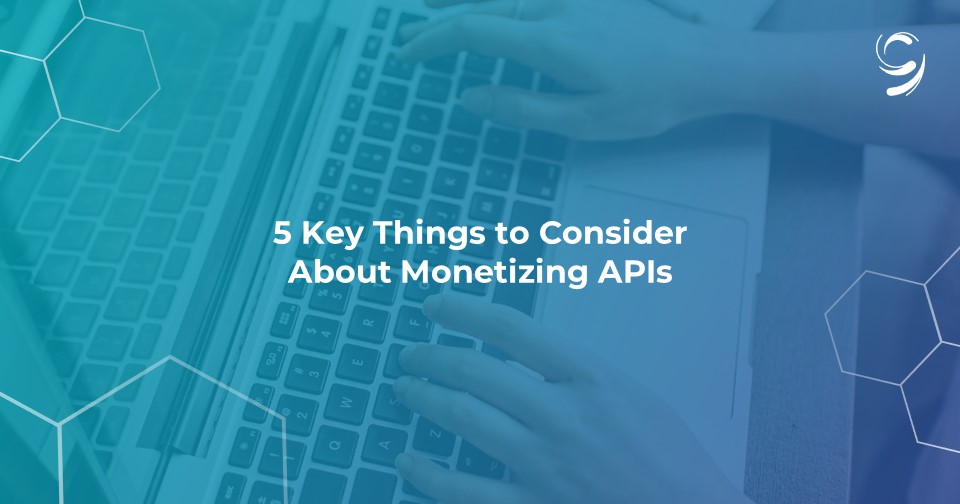The convenience of conducting banking transactions and managing finances from a cell phone or tablet is a must-have for most consumers today. Research shows that 78% of U.S. adults prefer to bank using a mobile app or website.
Most financial institutions have already jumped on the digital bandwagon by offering mobile banking apps and providing access to services through third-party applications. With the number of digital banking users expected to grow to 217 million in 2025, banks are exploring how they can harness mobile applications to create new revenue streams.
Many banks are embedding new products and services within different apps. However, some financial institutions are also contemplating a very different approach: Charging third-party apps, data aggregators and retail customers to access account data via the bank’s APIs (application programming interfaces). APIs are the primary methods banks use to securely share account information with third-party applications and the aggregators that obtain data on their behalf.
While monetizing APIs may seem like a surefire way to generate new revenue, lack of standardization, regulatory constraints and other issues can make it very challenging. Here are five things to consider before moving forward.
- Standardization (or a lack thereof)
Many finance apps use data aggregators to pull customer banking data into their applications. These aggregators handle all the backend work required to connect to each bank and transfer information. Requiring app companies to use bank APIs to obtain account information—and charging them for it—poses a massive challenge due to a lack of standardization.
Every bank’s API works differently. This means that app companies would have the highly onerous, time-consuming and expensive task of establishing connectivity with every single bank in the United States—an endeavor that virtually no company has the resources, interest or budget to take on.Some well-known banks have formed a consortium to drive standardization and monetize data sharing. However, as Ninth Wave Chief Revenue Officer Doug Bacon points out, “Efforts to-date have not been well-received. The consortium’s pay-for-play technology platform makes it easy to access customer account data from all member banks, but aggregators have been resistant to use it because of the fees involved and the onerous contract terms.”
- Free data-sharing alternatives
While screen scraping has many of its own shortcomings and is gradually being replaced by more secure data-sharing methods, it’s been used by aggregators to obtain bank account information for decades—and it’s free. Screen scraping involves using customer login credentials to gain access to account information. Tell an aggregator they must pay for API access, and there’s a good chance they will turn to screen scraping instead.
However, if banks can offer an alternative data collection method providing the highest levels of data quality and security as well as a better first-use connectivity experience and higher conversion rates, aggregators may consider fee-based premium packaging. Fees would be offset by the costs aggregators typically incur due to customer abandonment and the pervasive quality issues associated with screen-scraped data.
- Regulatory constraints
From a regulatory standpoint, the industry is moving towards enacting policies that support open finance—which is all about the free exchange of financial information. For example, the Consumer Finance Protection Bureau (CFPB) is gearing up to issue data rights rules that will give consumers more control over their financial information. The current proposed CFPB rules include making a customer’s financial data available to them or a third party at the customer’s request. This does not bode well for banks that seek to monetize APIs.
- Consumer sentiment
In the competitive financial services industry, the customer experience a bank provides is just as important as the products and services it offers. Charging customers to access their own account information does not provide an experience that is conducive to increasing loyalty and retention. On top of that, the proposed CFPB rules include provisions that will make it easier for disgruntled customers to turn to the competition.
- Billing complexities
It’s very common for people to access their bank account information from different applications to accomplish different things. For example, many people use their bank’s mobile app for checking account balances and Venmo or PayPal to transfer funds from their accounts. They may even use a financial wellness app to pull in data from their bank account to track spending. Figuring out how to bill retail customers with multiple data access points is a sensitive issue involving many logistical challenges.
Open Finance platforms provide a better way
The industry and regulatory shifts towards open finance and customer empowerment will make it very tricky for banks seeking to monetize APIs. Open Finance solutions for retail banking enable financial institutions to securely share permissioned account data with trusted third parties while ensuring regulatory compliance with consumer data protection and privacy rules. These platforms eliminate the risks associated with screen scraping and require minimal IT resources—and support the collaboration and innovation that is so critical to success.
Contact Ninth Wave to learn more about Open Finance solutions and how they can benefit your bank.
About Ninth Wave
Ninth Wave delivers secure, seamless, and standardized data connectivity to fintechs and financial institutions of all sizes, through a single point of direct integration to a universal suite of open finance APIs. With configurable controls, visibility, and insights into all data sharing and data acquisition connections between aggregators, third-party apps, and internal applications, Ninth Wave empowers financial institutions and their customers with access and oversight to their connected apps, enabling secure data exchange in a holistic and scalable open finance ecosystem. Offering solutions for retail and commercial banks, wealth managers, credit card issuers, tax providers, and more, Ninth Wave provides unparalleled connectivity and universal compatibility to complex information systems, unlocking innovation, potential, and performance for your data. Contact us to learn more about Ninth Wave’s secure data connectivity features. Empowering open finance. At scale, at last.






